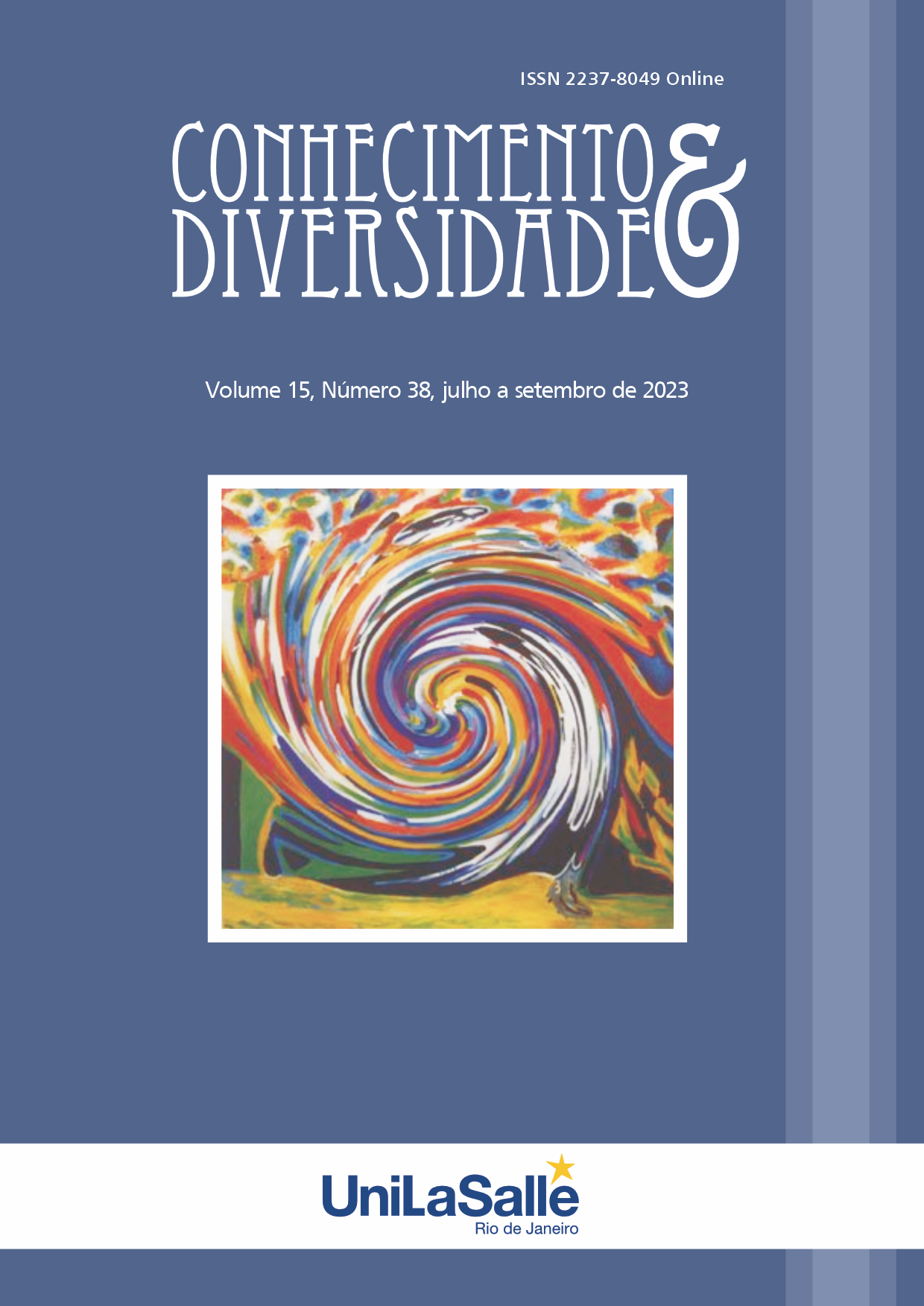TÁTICAS DE MANIPULAÇÃO NO DISCURSO DA MÍDIA DE LÍNGUA INGLESA MODERNA
ABORDAGEM LINGUÍSTICA, PRAGMÁTICA E EDUCACIONAL
DOI:
https://doi.org/10.18316/rcd.v15i38.11077Palavras-chave:
Discurso mediático, Comunicação mediática, Texto mediático, Abordagem linguística pragmática, Abordagem linguística e cultural, Abordagem educacional, Meios lexicais, Meios linguísticos, Tecnologias de manipulação, SemânticaResumo
A relevância do tema de pesquisa escolhido é ditada pela necessidade de descrever as táticas de manipulação no discurso moderno da mídia de língua inglesa, levando em conta tanto os mecanismos cognitivos envolvidos, que representam a base da atividade mental, quanto os aspectos comunicativos de influenciar uma pessoa. Grande audiência. Mostra-se que a manipulação implica a escolha e utilização de meios linguísticos que permitam ter um efeito oculto sobre o destinatário. A influência manipulativa é considerada uma prática discursiva líder, que é um complexo de componentes estratégicos e táticos destinados a moldar a opinião pública no espaço da mídia.
Referências
Atamali, Z. (2021). Manipulation in British political discourse. Scientific notes of TNU named after V. I. Vernadskyi. Series: Philology. Journalism, 32(71), 102-106.
Bounchnak, L. (2015). Discursive strategies of manipulation. LAP LAMBERT Academic Publishing.
Chester, J., & Montgomery, K. (2017). The role of digital marketing in political campaigns. Internet Policy Review 6(4). https://policyreview.info/articles/analysis/role-digital-marketing-political-campaigns.
Couglan, S. (2017, November 15). Six universities told to change advertising claims. BBC News. https://www.bbc.com/news/education-41984465
Cull, J. (2013). Living systems: An introductory guide to the theories of Humberto Maturana & Francisco Varela. CreateSpace Independent Publishing Platform.
Crain, M., & Nadler, A. (2019). Political manipulation and Internet advertising infrastructure. Journal of Information Policy, 9, 370-410.
Giusti, S. (2020). Democracy and fake news: Information manipulation and post-truth politics. Routledge.
Huff, M., & Higdon, H. (2019). United States of Distraction: Media manipulation in post-truth America. City Lights Publishers.
Kuzio, A. (2014). Exploitation of schemata in persuasive and manipulative discourse in English, Polish and Russian. Cambridge Scholars Publishing.
Kuzmenko, O., Kyryliuk, O., Bublyk, T., Boyko, Y., Ruban, V. (2023). Linguistic dimension of political advertising: Analysis of linguistic means of manipulative influence. World Journal of English Language, 13(1), 205-211.
Llopis, M., Breeze, R., & Gotti, M. (Eds.). (2017). Power, persuasion and manipulation in specialised genres: Providing keys to the rhetoric of professional communities (Linguistic insights). Peter Lang AG.
Matz, S., Kosinski, M., Nave, G., Stillwell, D. (2017). Psychological targeting as an effective approach to digital mass persuasion. Proceedings of the National Academy of Sciences, 114(48), 12714–12719.
Maturana, H., & Varela, F. (1992). The tree of knowledge: The biological roots of human understanding. Shambhala.
Mialkovska, L., Zhvania, L., Rozhylo, M., ... Yablonskyy, M., Hrysiuk, V. (2023). Digital tools in teaching the mass media language. World Journal of English Language, 13(4), 43-48. DOI: https://doi.org/10.5430/wjel.v13n4p43
Mintz, A. (Ed.). (2012). Web of deceit: Misinformation and manipulation in the age of social media. CyberAge Books.
Saul, J. (2023). Dogwhistles and figleaves: How manipulative language spreads racism and falsehood. Oxford University Press.
Siuta, H., Mialkovska, L., Ivanenko, I., Syrko, I., Senkovych, O., Sobol, L. (2021). Precedent names in the language of modern Ukrainian journalism. Ad Alta: Journal of Interdisciplinary Research, 11/02-XXII, 91-95. http://www.magnanimitas.cz/ADALTA/110222/papers/A_16.pdf
Van Dijk, T. (1996). Discourse, Opinions and Ideologies. In: C. Schäffner and H. Kelly- Holmes (eds) Discourse and Ideologies, pp. 7-37. Clevedon: Multilingual Matters.
Van Dyk, S. (2022). Post-truth, the future of democracy and the public sphere. Theory, Culture & Society, 39(4), 37-50.
Woolley, S., & Howard, P. (Eds.). (2018). Computational propaganda: Political parties, politicians, and political manipulation on social media. Oxford University Press.
Zienkowski, J., Östman, J., & Verschueren, J. (Eds.). (2011). Discursive pragmatics. Philadelphia.
Downloads
Publicado
Edição
Seção
Licença
Copyright (c) 2023 Liudmyla Mialkovska, Anzhelika Yanovets , Vita Sternichuk, Tamara Nykoliuk, Kateryna Honchar, Oksana Khnykina

Este trabalho está licenciado sob uma licença Creative Commons Attribution 4.0 International License.
Conforme recomendado pelo o Public Knowledge Project, a RCD adota para seus artigos uma licença CREATIVE COMMONS: Atribuição CC BY 4.0.
Esta licença permite que outros distribuam, remixem, adaptem e construam sobre o seu trabalho, mesmo comercialmente, desde que lhe dêem crédito pela criação original.
Esta é a licença mais adequada oferecida.
Recomendado para a máxima divulgação e uso de materiais licenciados.



